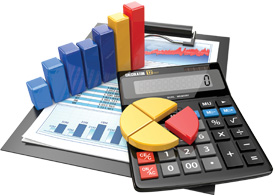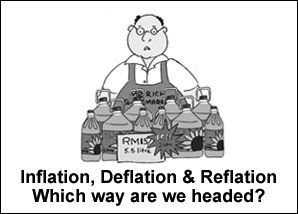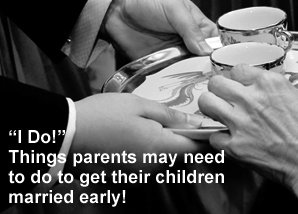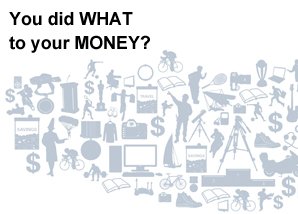An Unexpected Windfall?
Strategies to make the most of it.
The stars align and suddenly you find yourself sitting on a pile of cash. It is an unexpected windfall and you pinch yourself wondering if it is a dream, before you break into joy or fear or both at the same time. A windfall often viewed as “found” money1, has a higher emotional content when compared to hard earned cash. Emotions may range from guilt (in receiving an inheritance from the death of a loved one), insecurity (how will your friends relate to you now?) to confusion (what do you do with the money?). Due to the mixed emotions of instant wealth which may cloud your judgement, one may run into the risk of making bad financial decisions2.
It also has the tendency to immediately set the mind racing with a list of things to splurge on e.g. a new car, new property, overseas vacations, etc. And as easily as you have received it, the sudden wealth may be gone just as quickly. But when viewed and handled correctly, a windfall can go beyond the pleasure of new purchases to a means to create a more secure financial picture for yourself and your loved ones3.
While it may seem like a good problem to have, sudden wealth may be stressful and has its fair share of complications. So, firstly, let’s take a closer look at a windfall.
Is it expected or unexpected?
It may come in either form — an expected one such as bonuses, EPF withdrawals, maturity payout from insurance policies, sale of a property or an unexpected windfall like an inheritance or an unusually high return on investment.
How much do you get, exactly?
While coming into any amount of money is good, you may want to ask yourself some questions to put things into perspective:
- Exactly how much money are you looking at?
Are you receiving a RM30,000 bonus or a RM3,000,000 inheritance? The different numbers may create a very different set of questions and choices. - Do you have to pay taxes on the windfall?
Is it considered taxable income? Will you be receiving a tax-deducted payout or are you responsible to pay taxes due? Will the windfall push you to a higher tax bracket and increase your total tax liability? If so, do remember to set aside enough money for taxes before you spend your windfall. To be on the safe side, you may wish to talk to a tax professional or accountant to determine the tax implications, how much you will receive after taxes and how the taxes will be paid4.
How will you receive it?
Depending on the reason behind your windfall (bonus, inheritance, investment payout, etc), you may receive your funds in any of these options:
- One-time lump sum payment.
- Annual payments over a certain period of time (e.g. over 20-25 years).
- One-time cash payment plus annuity. It may involve a portion of cash payment upfront and the remainder in scheduled payments over a specific time period4.
The mode of payment may influence your decisions on managing your windfall. For example, a lump sum payment may offer a large enough capital to start a business, while an annual payment may offset your cost of living and give you greater financial flexibility to manage your funds. Having a clear picture of how the funds will come in is essential before you make big decisions like quitting a job, moving or making a large purchase.
Once that you have a clear idea of your windfall and where it is coming from, you may consider these steps to deal with your newfound financial advantage:
Adjust to your new financial position
- Pause and prioritise: The urge to immediately spend, invest, donate it away or quit your job may be strong, even overwhelming. But the first thing you may want to do is to do nothing, until you have a financial plan. You may want to wait six months to a year to allow the excitement of the windfall to die down and adjust to your new financial position5. In the meantime, as you work on your financial plan, consider putting the money somewhere temporary like a separate account to avoid dipping into it1. An account like HSBC’s Time Deposit lets you earn interest, if you hold it to maturity, while you decide on what to do with your money.
- Put in into perspective: Take a long hard look at your current financial reality and determine how you may use the windfall to your financial advantage. You may wish to ask yourself some of these questions to kick start your financial review6:

Is the amount in your emergency fund at a healthy level?

What are the outstanding debts that you’d like to pay off?

Do you have plans in place for your children’s education?

Are your retirement savings on track?

Are you planning to buy a first or second home?

Are you considering quitting your job or going into business?

Are there charitable causes that you would like to support?
- Ponder the possibilities: See the bigger picture beyond simple purchases — your windfall may have the potential to create a new financial reality for you. Your windfall may afford you the capacity to now reassess your lifestyle and decide how it may better reflect your personal values and goals. Refer to the diagram on your right for ideas on some possibilities.
You may wish to take some time to reflect carefully about the aspects of your current lifestyle that you enjoy and would like to remain the same, and areas you would like to change, if any. But don’t rush into making these changes. Brainstorm, do some research and make informed choices about the lifestyle changes you would like to pursue7.
Assemble your financial team
- Assemble a team of advisers for unbiased advice. You may need the services of a financial planner, tax adviser, money manager who has experience with high-net-worth individuals and an accountant to work out a solid financial plan and make the most out of your good fortune. Don’t underestimate the power of financial planning. In the Future of Retirement 7 survey conducted by HSBC Group, results have shown that globally, there is a positive relationship overall – “with 44% of respondents saving more for retirement as a result of having a financial plan. This relationship is even stronger in Malaysia, where more respondents (53%) say financial planning led to increased saving for retirement8.”
- Review your financial status with your Relationship Manager. Your Relationship Manager is always available to provide a complimentary Financial Review to assess your financial goals and investment portfolio. Answer the questions below to assist you in finding out if you need a review:
![]() Have your financial goals or priorities changed in any way?
Have your financial goals or priorities changed in any way?
![]() Has your life circumstances changed? (eg. New job? Moving overseas? Children leaving for college?)
Has your life circumstances changed? (eg. New job? Moving overseas? Children leaving for college?)
![]()
Are you planning to retire soon?
![]()
Are you expecting to capture more investment opportunities?
![]()
Has your risk tolerance changed?
If you’ve answered “Yes” to one or more questions, you may wish to speak with your Relationship Manager to review your financial plans and align them to your goals9.
Proportionate funds to your financial goals.
Based on your financial plan, you may want to channel your funds to immediate, short-term and long-term financial goals, which may include some or any of the following:
- Debts: You may have to balance the decision to pay off debt with your windfall or invest it. First, take a look at the interest rate you are paying on the debt versus the expected investment return. If the interest rate is low and the monthly payments are manageable, then investing may be the better option. However, if the debt or loan is weighing you down, you may wish to take steps to reduce or eliminate it. In such instances, prioritise debt with the highest interest rates first, such as credit card debt, and also loans that have the greatest impact on your monthly cash flow such as personal loans. Depending on the interest rate, you may also consider reducing your home loan or car loan10.
- Emergency fund: If you do not have one yet, you may want to set it up as soon as possible. An emergency fund is an easily accessible stash of money set aside specifically for the unexpected things life throws your way. It is not for miscellaneous purchases. Use the Emergency Fund in the event of illness, layoff, sudden large repair bills, etc11.
- Insurance coverage: You may consider reviewing the insurance coverage you currently have and determine if it provides you with appropriate and sufficient financial coverage to handle financial contingencies that may affect you or your family in case of the unforeseen. Remember, even a really big financial windfall can be quickly wiped out if you have an unexpected medical crisis or disaster. As your coverage needs may grow as you grow older, consider an insurance plan that gets stronger with the years such as HSBC’s HealthPlus. The medical coverage in terms of initial Overall Annual Limit automatically increases up to 2x12and there is no lifetime limit on the total medical claims that you can make to this plan.
HSBC’s HealthPlus (“this Plan”) is underwritten by Allianz Life Insurance Malaysia Berhad (104248-X) (“Allianz Life”) and HSBC Bank is the intermediary in distributing this Plan.
- Investments for lasting wealth: With your financial planner, you may want to strategise and review suitable investment instruments that match your short-term, medium-term and long-term goals. Here are some ideas about possible financial goals and savings/ investment vehicles:
![]()
Providing for your child’s college education–you can consider working with your Relationship Manager to target unit trust funds with potential returns that match the future tuition costs. Another option would be
the Takaful Education Plan, an investment-linked plan that also provides Takaful protection.
![]()
Paving for your retirement–if you have a short fall in your retirement funds, you could aim for more aggressive Structured Investments that match your risk tolerance for potentially higher returns (as compared to
conventional Fixed Deposits). The Takaful Retirement Plan is also an option.
You may speak to your Relationship Manager on the investment services available suited to your needs.
Give yourself a treat.
- Enjoy yourself with play money. After all,what’s newfound wealth without a little indulgence? After you’ve set aside funds for your top financial priorities, you may allocate a portion of your windfall to pamper yourself. It may be a small percentage of the windfall total, perhaps, no more than 5%, and only after any debt and tax obligations are paid off5.
Don’t throw caution to the wind
- Unsustainable lifestyle: Do bear in mind that your windfall may be a one-time event so you may not want to use the new funds to create a lifestyle that you cannot sustain. Your resource may quickly run out should you use it to fund your increased regular spending10.
- Too-good-to-be-true opportunities: When news of your newfound wealth reach others, you would invariably receive many offers – investment schemes, business opportunities and glossy brochures of luxury products. You may want to thoroughly investigate every investment, business and large purchase before proceeding6.
- Don’t be a human ATM machine: Friends, family and even strangers, may begin to request for financial gifts, “loans” or donations towards charitable causes. It can be emotionally draining to deal with a constant stream of requests for handouts. To avoid getting your kindness exploited by guilt-trips, emotional pressure and manipulation, you may consider having a trusted third- party serve as an intermediary to handle all requests for money13.
A windfall can be a big financial blessing, if you plan well and control the urge to spend lavishly. It may provide financial security for you and your family as well as create wealth that lasts for years6. More than just monetary benefits, a windfall may offer you the financial freedom to explore the things you feel called to pursue and provide the means to create the life you’ve dreamed about for you and the people you love14.
Source:
1. Kiplinger, “5 Smart Steps to Manage a Financial Windfall”, September 2012 2. Forbes.com, “Know Thyself”, 25 July 2011 3. UnwantedChange.com, “Windfall: How to think about the money” 4. UnwantedChange.com, “First Things First: Stop, Ask and Think” 5. Bankrate.com, “4 steps to protect a windfall”, 25 September 2009 6. 360degrees of Financial Literary, American Institute of CPAs, “Could You Handle a Financial Windfall?”, 25 January 2013 7. UnwantedChange.com, “What a large windfall can affect: Your current lifestyle” 8. Reproduced with permission from The Future of Retirement, published in 2013 by HSBC Insurance Holdings Limited, London 9. Adapted from HSBC Expat, “Step by step guide to financial planning for expats”, HSBC Group’s 2011 10. Inside Indiana Business, “What to Do With a Financial Windfall?” 11. Time Magazine (Business), “Start an Emergency Fund to Prepare for Financial Emergencies, 06 Nov 2012 12. 5% automatic increase of initial Overall Annual Limit at end of every policy year, subject to maximum of 200% of the initial Overall Annual Limit (Regardless of claims experience) 13. Daily Finance, “Six Tips on How to Avoid Squandering a Financial Windfall”, 21 March 2011 14. UnwantedChange.com, “What a large windfall can affect: Your future financial goals”
April 2013


 LIKE THIS ARTICLE?
LIKE THIS ARTICLE?






















